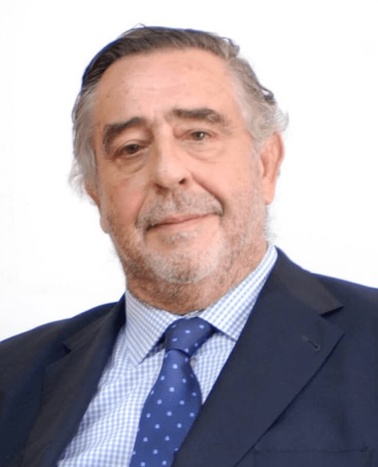
Tomás Pelayo
Tomás Pelayo Muñoz is an expert in company law and commercial law. He graduated from the University of Navarra before completing the IE University master’s program in ‘Asesoría Jurídica de Empresas’, as well as the corporate taxation program at the Bank of Spain training center. In addition to being a lawyer, he is a founding partner of PCB Abogados and arbitrator at the Madrid Court of Arbitration. He combines these responsibilities with his work as a professor at IE Law School.

"IE has been teaching these master’s programs for years and this experience is clearly a differentiating factor."
What was it like studying at IE Law School?
I had an excellent relationship with both my teachers and peers. When I arrived at IE University I was a theorist. I knew a lot about law, but I learned that there is no point in knowing about something if you can’t put it into practice.
The main role of a lawyer is to detect problems in order to reach solutions. Regardless of how much you know, you can’t come up with a solution if you’re not able to detect the problem.
In the judicial field, the client explains the situation in their own way. After hearing the client’s story, a lawyer has to be able to detect the problem in order to offer a solution.
Within the teaching field, it’s always been my goal to encourage students to identify the problem and then work towards finding a solution.
How do you approach teaching and what do you enjoy most about your classes?
You have to be close with your students while always maintaining enough distance to ensure the student-teacher dynamic. That’s because it won’t be long until you have to interact with them in court or negotiate a contract together. You have to be aware that what you teach them is what you’re doing professionally.
I constantly learn from my students and the ideas they propose. When I teach my classes, I try to remember what it was like to be sitting in their place.
I know that I’ve done a good job when my students understand what I explain and, above all, when they understand its value.
What makes IE University different to other educational institutions?
I would highlight four key differences. First, there’s the teachers and the programs, which are very well designed, even if there’s room for improvement. Then there is the bond created between students, who will all become future colleagues. This connection will be very important for them in the future. Finally, there are the career opportunities, which are incomparable to those offered by any other master’s program.
Unlike other institutions, IE University has been teaching these master’s programs for years, and this experience is clearly a differentiating factor. Its legal programs are clearly focused on what the market demands today, and that’s the most important factor.
What are the main challenges facing lawyers of the future?
Internationalization, which is different from globalization. Currently, law is not the same across the board as there are still several different legal systems. The world may be fully connected, but we shouldn’t lose sight of these differences.
Secondly, the role of specialization. Lawyers should not avoid specialization, but neither should it be overdone as it can lead to a loss of perspective. A single legal decision cannot disregard all the other implications of the legal system. For example, you may be a corporate lawyer, but you need to be aware of the consequences beyond your scope of practice. I’m not a supporter of radical specialization at all.
Thirdly, familiarity with the business world. The client is going to talk to you in a certain language that you must understand if you are to do what they ask of you.
Finally, you must consider what lies on the horizon for your client. You have to be able to visualize what may happen in the future. Of course, we can’t predict what will happen, but it’s essential that we are aware of the different possibilities that may arise. It has a lot to do with experience, and that’s what IE University professors try to achieve in their classes: to convey their experience.
Given your main subject matter, do you think corporate restructurings will play an important role in the current climate?
They’ll always be important. The current climate may have an impact, but the problems will be more related to saving companies in crisis, insolvency proceedings, and so on. Restructuring has always been important, because you have to be able to streamline your business. In these times of crisis, restructuring is one more tool to consider.
What advice would you give to students who want to pursue commercial law?
To be a good commercial lawyer, you first have to know what a company is and then you have to understand the business world. This involves goals that are sometimes neither your own nor expressed in your own language.
You need to understand what can happen to the company. In the case of a merger by absorption, for example, the company loses its tax identification number (its NIF in Spain), and that’s undesirable for the business as that’s how they present themselves to their customers. That’s why it’s essential that the lawyer understands their business client.
What skills does a commercial lawyer need?
They should be familiar with the law in general, both company law and commercial law. But above all, they should be able to understand and communicate.
TAKE THE NEXT STEP IN YOUR LEGAL EDUCATION
TAKE THE NEXT STEP IN YOUR LEGAL EDUCATION